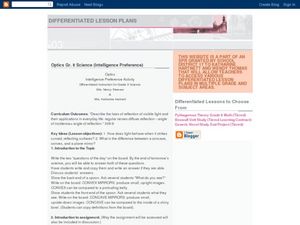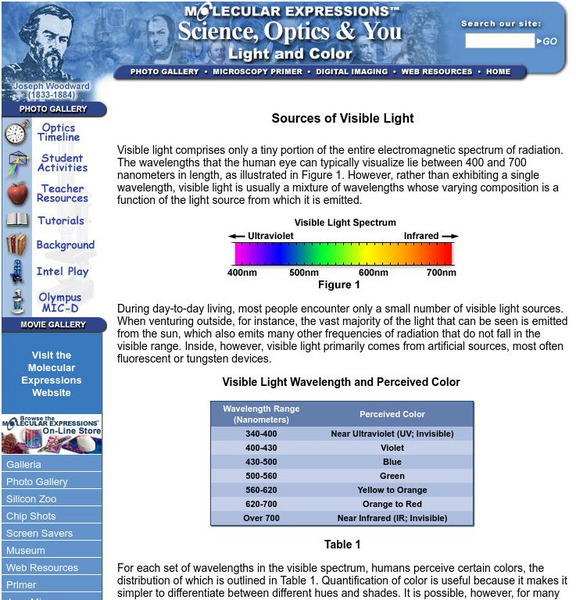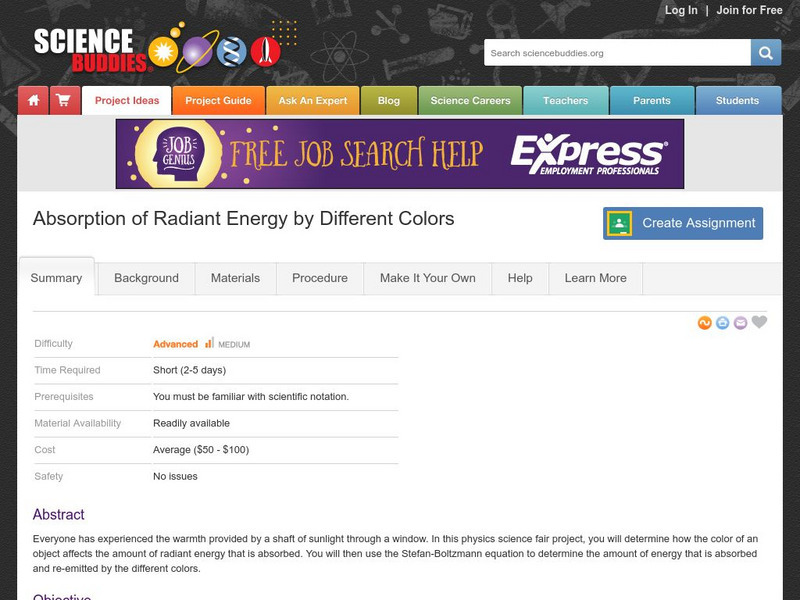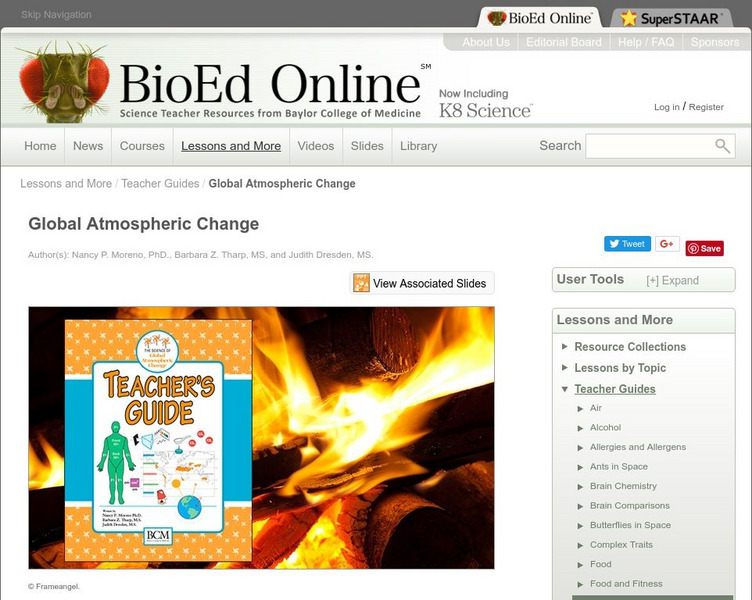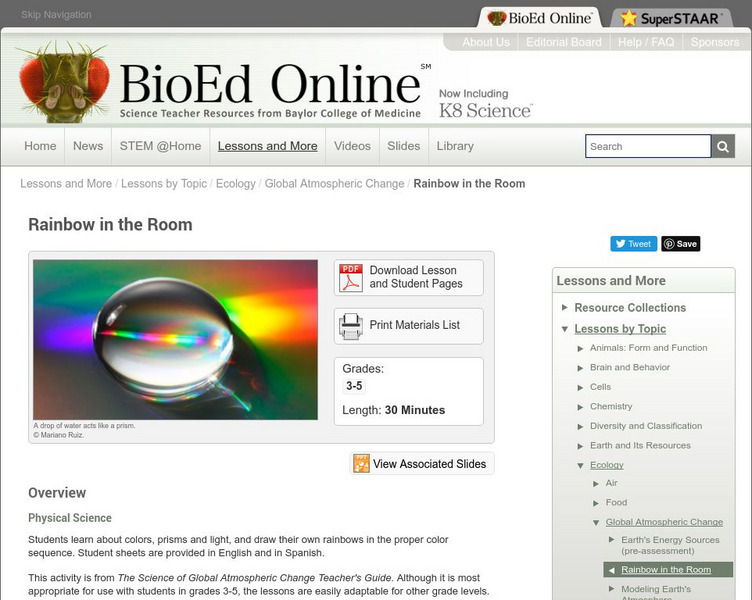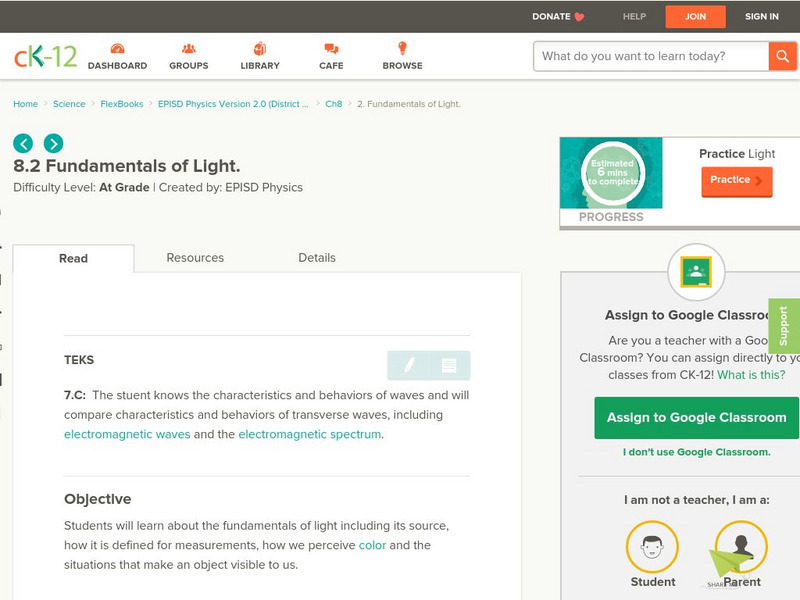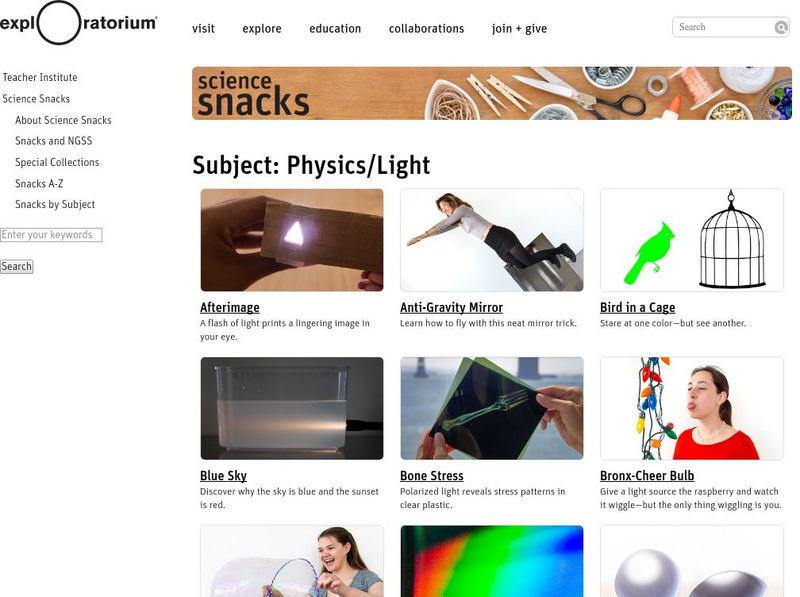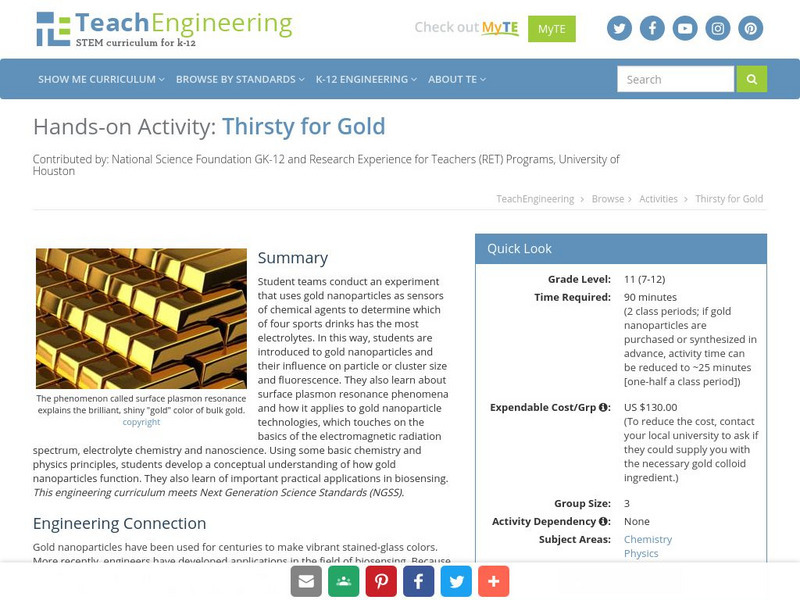Alabama Learning Exchange
Light Is
Young scholars explore the properties of light. In this light lesson, students investigate visible light by viewing a website, examining an electromagnetic spectrum chart, and observing light demonstrations. Young scholars write about...
Curated OER
Star Light...Star Bright
In this brightness of stars worksheet, high schoolers use a given formula using the temperature in Kelvins of a star to find its brightness. Students solve 4 problems using this equation.
Curated OER
Light
In this light worksheet, students read what makes light, the speed of light, and the electromagnetic spectrum. Students complete 12 matching, 8 fill in the blank, and 9 word problems.
Curated OER
Intelligence Preference
Eighth graders describe how light behaves when it strikes a surface. In this physics lesson, 8th graders investigate how the different types of mirrors reflect light. They work with their chosen group on a task they selected.
Curated OER
Obtain a visible spectra of chlorophyll a
Students become familiar with the concept of spectroscopy or the study of the interaction of matter with electromagnetic radiation. They prepare solutions and measure absorbance at different wavelengths. Pupils comprehend that mater and...
Curated OER
Understanding Light: Lesson 2 - The Electromagnetic Spectrum
Students investigate the Electromagnetic Spectrum and realize there is energy beyond visible light. They identify parts of the EM Spectrum.
Curated OER
Exploring Infrared Image Technology
Students investigate the formation of infrared images. In this physics lesson, students discuss the different application of infrared imaging technology. They compare this to images formed by visible light.
Curated OER
Radiation from Space
In this radiation worksheet, learners review the different types of radiation waves that come from space and the different telescopes used to detect this radiation. This worksheet has 17 true or false questions.
Curated OER
Heat Currents
Students using a slide made out of aluminum foil and pin holes observe visible light.
Curated OER
Analytical Spectroscope
Students using a spectroscope view different substances when heated with electricity.
Curated OER
Water Prism
Students using a glass prism filled with water are able to see all of the visible colors found the sunlight.
NASA
Nasa: Imagers: The Electromagnetic Spectrum
NASA site provides information on waves, electromagnetic waves and their wavelengths.
Georgia State University
Georgia State University: Hyper Physics: Scattering Concepts
A collection of several pages explaining the principles which underlie Rayleigh scattering of light.
Florida State University
Florida State University: Light and Color: Sources of Visible Light
This site discusses primary lighting sources and gives information on the different properties and spectral characteristics of each. Also includes links to some interactive Java applets.
American Museum of Natural History
American Museum of Natural History: Ology: See the Light
Reflection, refraction, and the colors that make up white light is explored through lab activities after reading a brief background about light energy.
Science Buddies
Science Buddies: Absorption of Radiant Energy by Different Colors
In this science fair project, use an infrared thermometer to measure the temperature of differently colored paper exposed to sunlight, and calculate energy emission using the Stefan-Boltzmann equation. Find discussion questions, a list...
University of Colorado
University of Colorado: Physics 2000: Quantum Atom
Several pages with an interesting discussion of the visible light spectrum and atomic absorption and emission line spectrum. Features excellent graphics, thorough and understandable discussion, and many interactive Java applets.
Institute for Dynamic Educational Advancement
Web Exhibits: Causes of Color
Why are things colored? This site explores the 15 phenomena that create our colorful world. Learn how light is made, lost, and moved!
BioEd Online
Bio Ed Online: Global Atmospheric Change
A teaching guide with eleven lessons on the atmosphere, and the impact that different kinds of energy have on the atmosphere and ecological systems. The unit and accompanying PowerPoint can both be downloaded.
BioEd Online
Bio Ed Online: Rainbow in the Room
Students investigate the properties of visible light and the sequence of colors in the spectrum using light shone through water and prisms. The lesson and accompanying slideshow can both be downloaded.
CK-12 Foundation
Ck 12: Fundamentals of Light
[Free Registration/Login may be required to access all resource tools.] Students investigate the fundamentals of light including its source, how it is defined for measurements, how we perceive color, and the situations that make an...
Exploratorium
Exploratorium: Science Snacks: Physics/light
Here is a large collection of simple science class activities for understanding the physics of light.
TeachEngineering
Teach Engineering: Beating the Motion Sensor
Lighting is responsible for nearly one-third of the electricity use in buildings. One of the best ways to conserve energy is to make sure the lights are turned off when no one is in a room. This process can be automated using motion...
TeachEngineering
Teach Engineering: Thirsty for Gold
Student teams conduct an experiment that uses gold nanoparticles as sensors of chemical agents to determine which of four sports drinks has the most electrolytes. In this way, students are introduced to gold nanoparticles and their...





